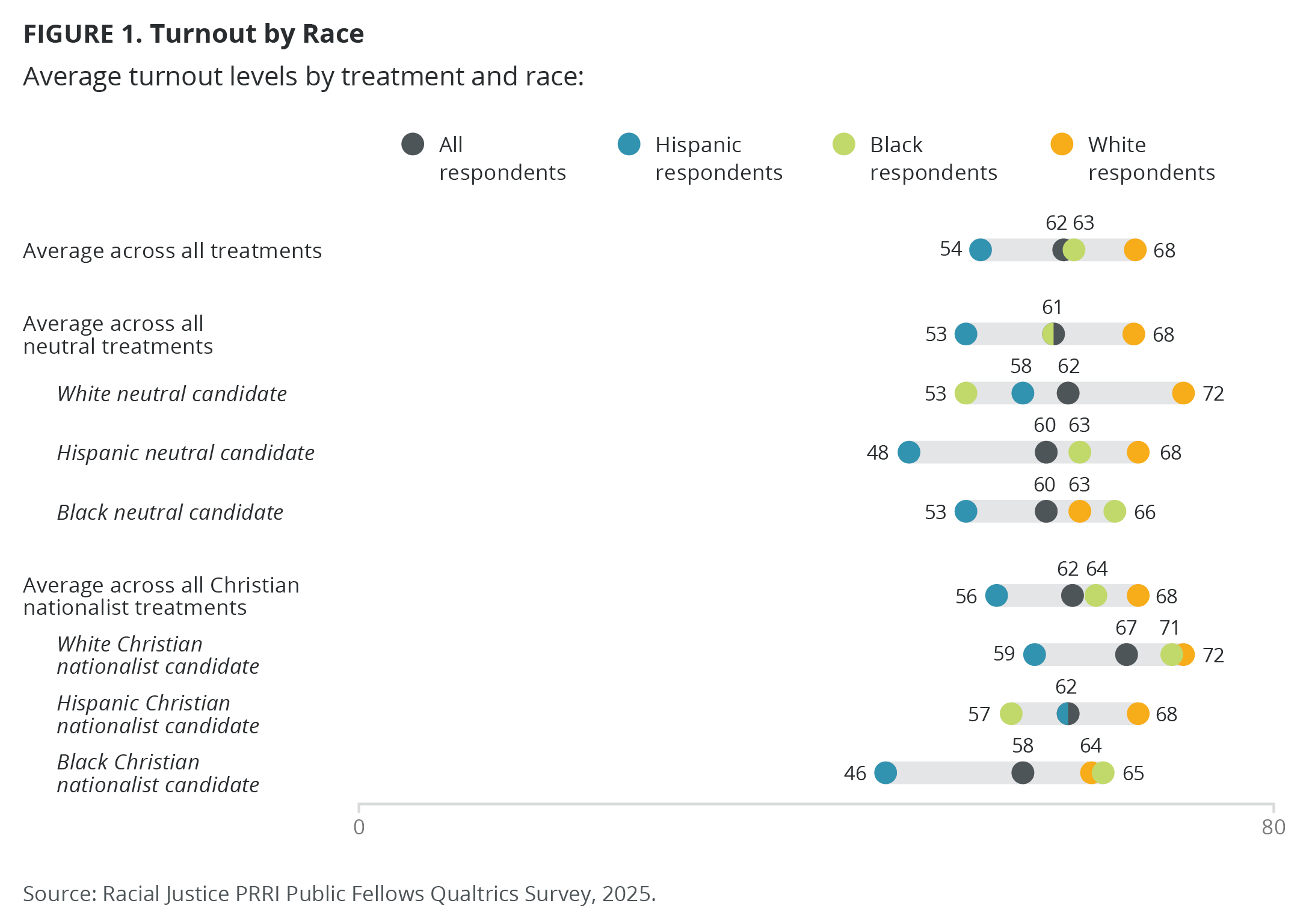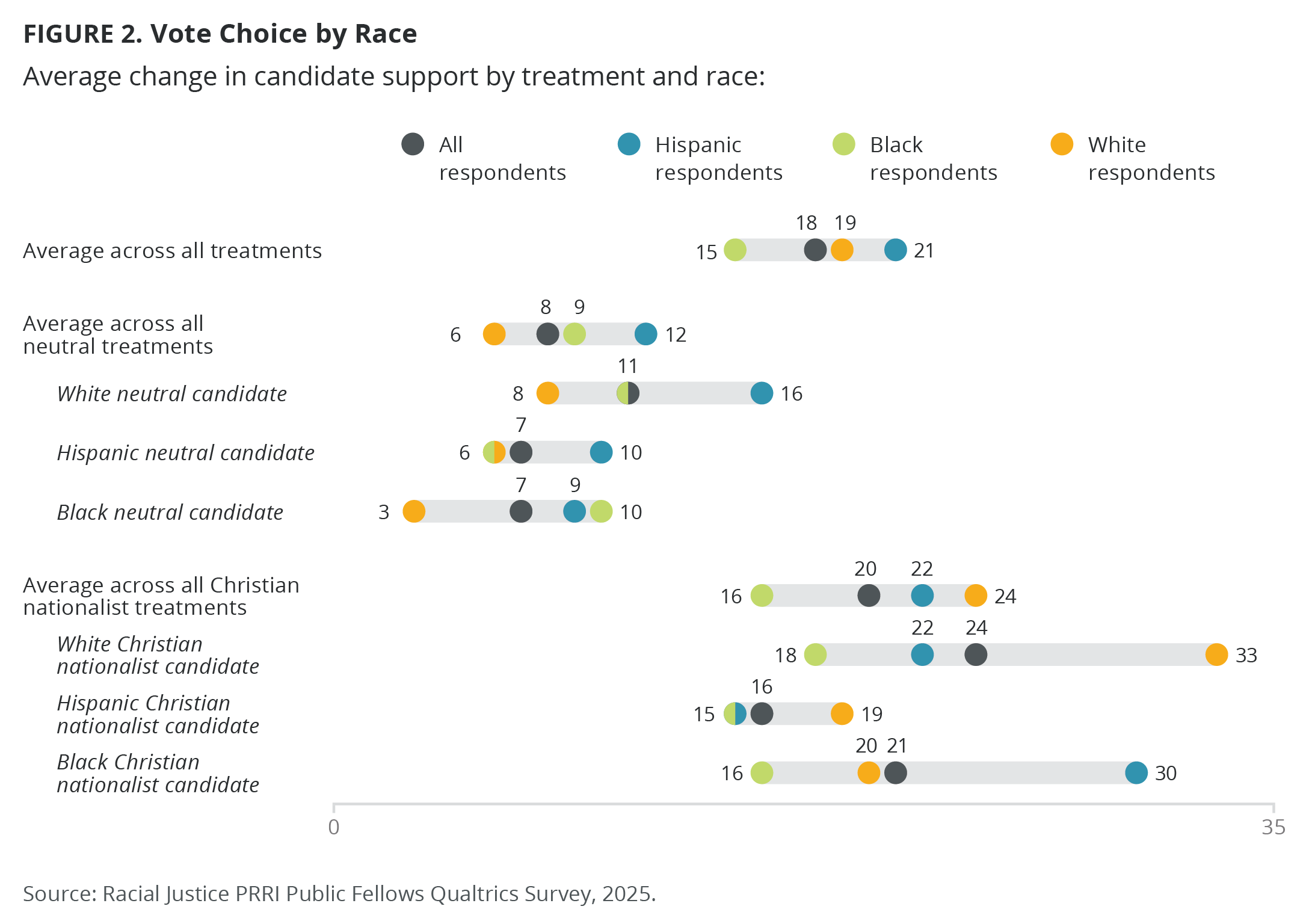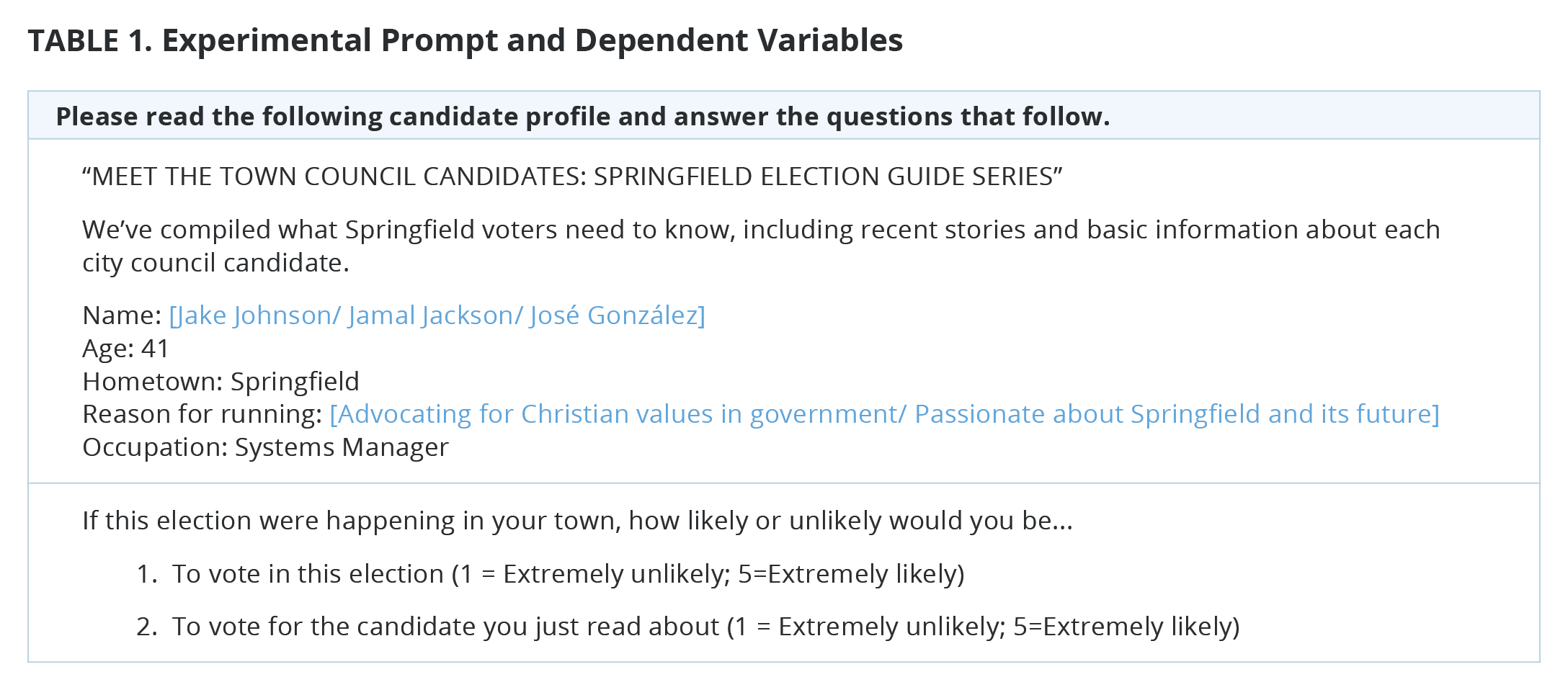Allyson Shortle, Ph.D., is an associate professor and director of graduate studies in political science at the University of Oklahoma and a 2024-2025 PRRI Public Fellow.
Michael R. Fisher Jr., Ph.D., is an assistant professor in African American and African Studies at The Ohio State University and a 2024-2025 PRRI Public Fellow
In the 2024 election between President Donald Trump and former Vice President Kamala Harris, notable racial differences emerged among voters who qualify as Christian nationalism Adherents and Sympathizers. According to a 2025 PRRI national survey, nearly seven in ten white Christian nationalism (CN) Adherents and Sympathizers (69%) voted for Republican presidential candidate Donald Trump. Far fewer Hispanic (28%) and Black (12%) CN Adherents and Sympathizers voted for Trump; in fact, majorities in both groups (64% and 51% respectively) didn’t vote for president in 2024. These findings echo another study that reveals racial divergence in white Christian Nationalists’ versus Christian Nationalists’ of color attachments to progressive labels, termed the “White versus Woke” gap. The White v. Woke divide runs counter to evidence showing Christian nationalists’ reliable tendency toward conservative behavior.[1] The mixed findings raise important questions about how voters respond to Christian nationalist rhetoric in political campaigns, especially when race is involved. This Spotlight Analysis examines the potential influence of Christian nationalist rhetoric on elections and argues that it may, in some cases, demobilize support for political candidates who use it.
Does Christian Nationalist Rhetoric Shape Turnout and Voter Decision-Making?
Experimental Analysis
To better understand the role of Christian nationalist rhetoric in driving voter behavior across race, we used PRRI funding to field a national survey experiment. The survey was conducted among a national quota-based sample with roughly equal proportions of white, Black, and Hispanic Americans by Qualtrics (N=2,752), matching U.S. demographics within each racial group on gender, income, and age. The survey experiment uses the context of a town council election, as local politics are witnessing heightened levels of Christian nationalist political maneuvering, particularly in red states.
Survey respondents were randomly assigned one of six candidate profiles and asked to provide an evaluation of the town council candidate running for office in the hypothetical town of “Springfield.” The six profiles varied on two dimensions: race and rhetoric. The racial variations presented participants with either a white, Black, or Hispanic candidate (Jake Johnson, Jamal Jackson, or José González, respectively). The rhetorical variations presented either a Christian nationalist motive for running for town council (e.g. “Advocating for Christian values in government”), or a neutral motive for running (e.g. “Passionate about Springfield and its future”). We then analyzed respondents’ responses across these six treatment groups.
Christian Nationalist Rhetoric’s Impact on Voter Turnout
In our experiment, Christian nationalist rhetoric fails to mobilize respondents to a statistically significant degree, most of the time, with some notable exceptions. While 68% of white respondents expressed a likelihood of turning out across all treatments, those exposed to the two white candidate treatments were more likely to claim they would vote. White respondents also claimed to be less likely to turn out after exposure to the Black candidates. Similarly, whereas roughly 50% of Hispanic respondents claimed they would turn out across most treatment groups, Hispanic respondents in the Black candidate treatments expressed lower likelihoods of turnout.
Interestingly, Hispanic turnout was highest in the Hispanic Christian nationalist treatment. Finally, while an average of 63% of Black respondents stated they would turn out across treatments, they were significantly more likely to turn out after exposure to the white Christian nationalist candidate (71%), which contrasted with the significantly smaller proportion of Black respondents exposed to a white candidate using neutral rhetoric (53%).
The findings demonstrate that Christian nationalist rhetoric’s ability to mobilize is dependent on the race of the messenger, with Black and Hispanic voters responding to rhetoric when expressed by white and Hispanic candidates, respectively.

Christian Nationalist Rhetoric’s Impact on Vote Choice
The data suggest that Christian nationalist rhetoric uniformly harms a hypothetical candidate’s chances for local office. We see opposition surge across the Christian nationalist rhetoric treatments. The effects are greatest for white respondents when moving from neutral rhetoric to Christian nationalist treatments, which results in a shift in opposition from 6% to 24%. Meanwhile, a similar shift increases the proportion of Hispanic respondents claiming they would oppose the candidate from 12% to 22%, and Black opponents from 9% to 16%.

Our findings suggest that Christian nationalist rhetoric doesn’t motivate most people to vote on its own, but it can mobilize voters when certain racial dynamics are present. Meanwhile, Christian nationalist rhetoric can stimulate significant opposition to candidates who use it.
It remains unclear whether these same dynamics uncovered in this analysis would hold in elections where a partisan cue is provided (e.g., national elections). However, it is important to note that while national-level Christian nationalist actors can benefit from divisive Christian nationalist rhetoric, everyday Americans (including Americans who qualify as CN Adherents and Sympathizers), prefer to prevent Christian nationalism — and the divisiveness that comes with it — from entering their backyards.
This experiment reveals that further research on the impact of Christian nationalism rhetoric in political campaigns is warranted to fully understand its mobilizing or demobilizing effects.

[1] For additional studies, see Andrew L. Whitehead and Samuel L. Perry, Taking America Back for God: Christian Nationalism in the United States (Oxford University Press, 2022); Philip S. Gorski and Samuel L. Perry, The Flag and the Cross: White Christian Nationalism and the Threat to American Democracy, with Jemar Tisby (Oxford University Press, 2022); and Eric L. McDaniel, Irfan Nooruddin, and Allyson F. Shortle, The Everyday Crusade: Christian Nationalism in American Politics (Cambridge University Press, 2022).





